ITTO underscores sustainable tropical forest management as a climate solution at COP30
21 November 2025, Belém
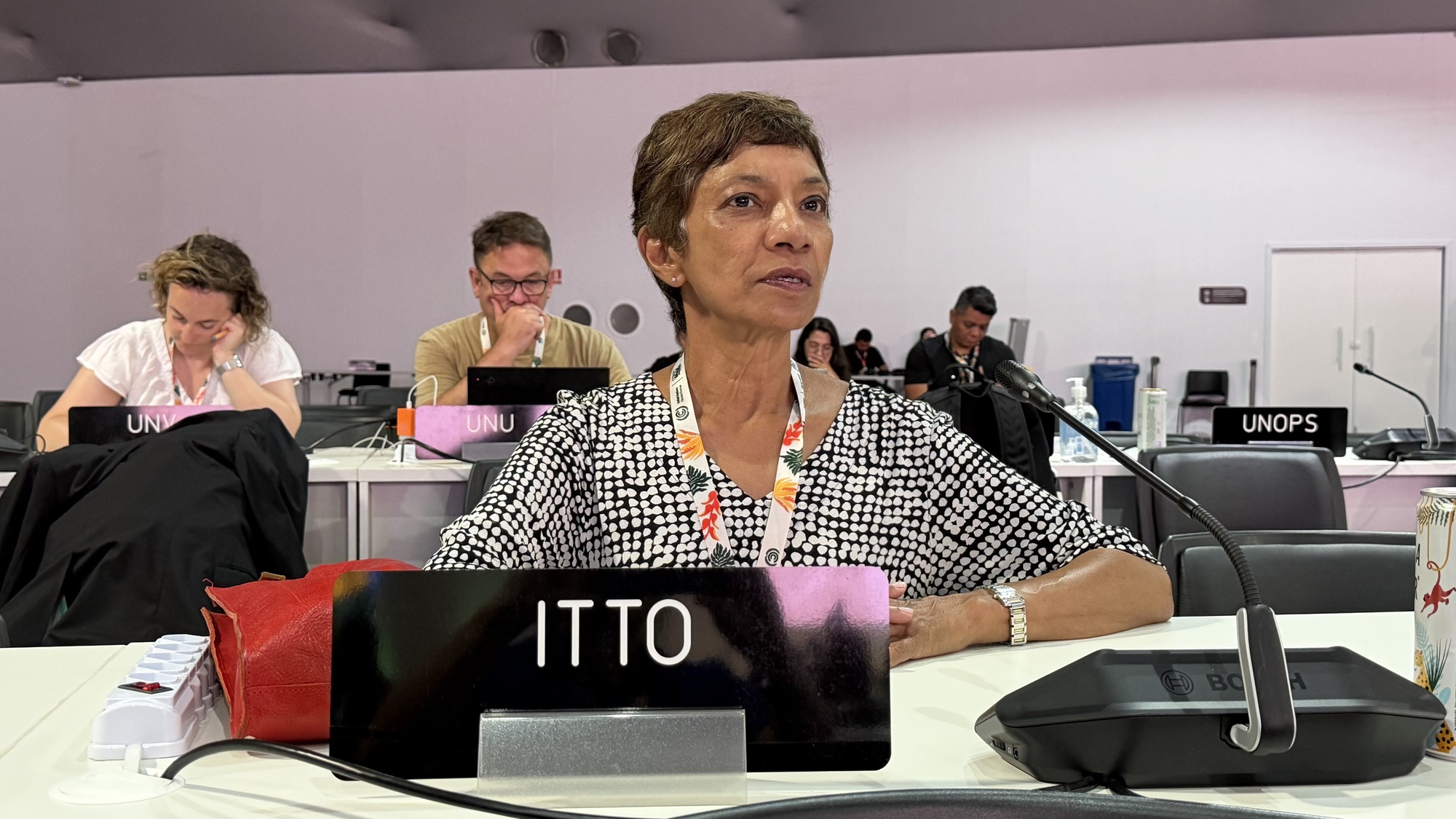
ITTO actively contributed to a full day of high-level engagements and technical discussions at COP30 where the organization showcased its leadership in sustainable forest management, responsible forest-based value chains, wildfire resilience, and global partnerships. © Ramon Carrillo/ITTO
ITTO actively contributed to a full day of high-level engagements and technical discussions at the 30th Conference of the Parties to the UNFCCC (COP30), emphasizing that sustainably managed tropical forests are indispensable to global climate and development goals. The Organization’s participation on 18 November showcased its leadership in sustainable forest management (SFM) in the tropics, responsible forest-based value chains, wildfire resilience and global partnerships.
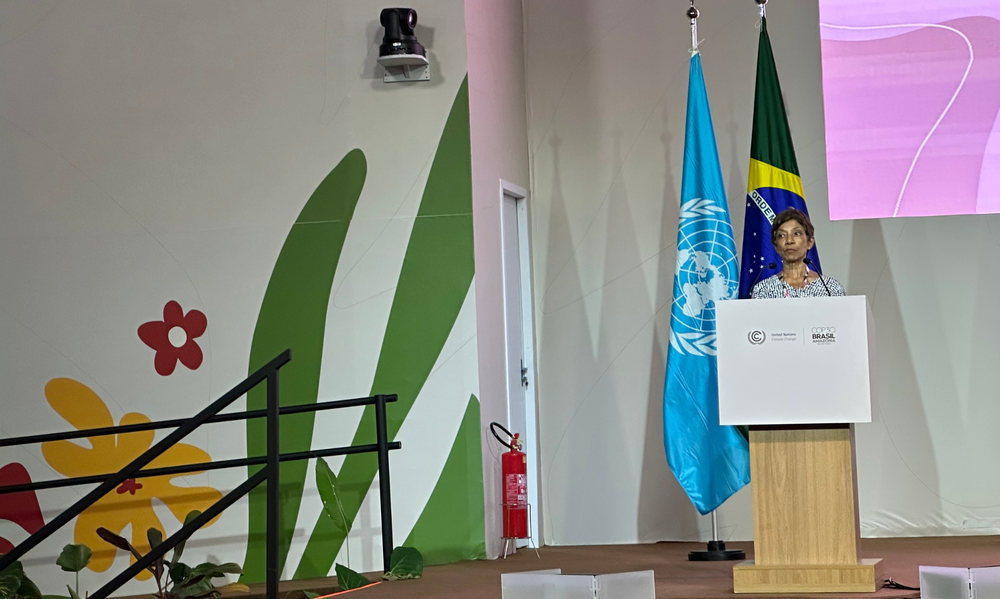
ITTO Executive Director calls for paradigm shifts and targeted investment in tropical forests
In her statement to the high-level segment of COP30, ITTO Executive Director Sheam Satkuru commended Brazil for placing tropical forests “at the core” of the COP30. She underscored that tropical forests are essential for climate mitigation, adaptation and biodiversity conservation, while also serving as the foundation of climate-smart circular bioeconomies that support 1.6 billion people.
Ms Satkuru emphasized that sustainable tropical forest management delivers wide-ranging benefits—from poverty reduction and livelihoods to carbon storage and enhanced climate resilience. She called for new narratives and immediate shifts in global discourse, insisting that sustainable harvesting must not be confused with deforestation.
“Funding should flow to those who sustainably manage tropical forests,” she urged, highlighting the need for stronger domestic, regional and international markets for legal and sustainable wood. She stressed that integrated value chains can deliver transformational climate results and inclusive development, but only if COP30 deliberations translate into innovative partnerships and sustainable finance that reach actors on the ground.
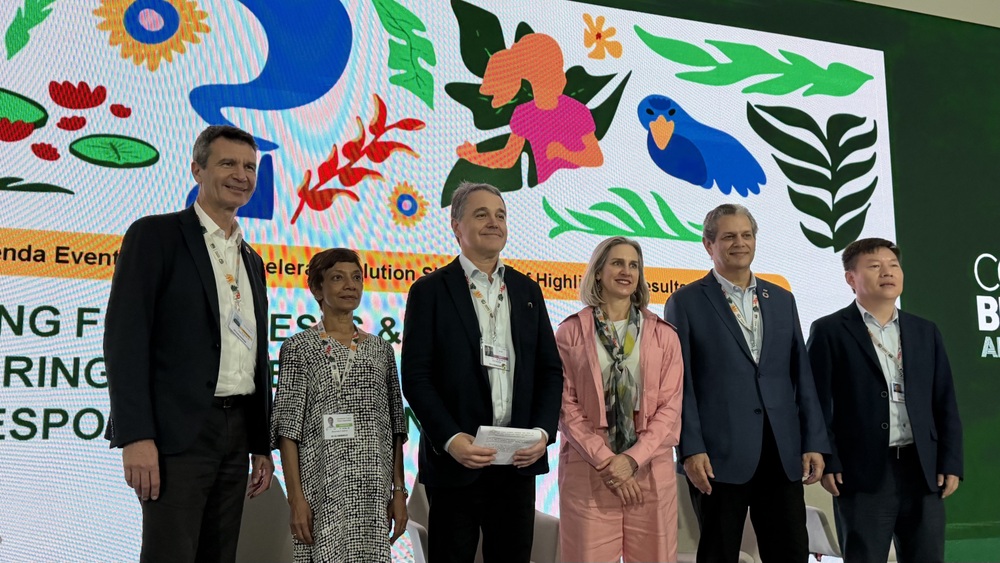
Driving responsible building solutions with sustainable wood
As the co-lead of the Sustainable Wood for Sustainable World (SW4SW) initiative, ITTO contributed to the side event “Building for Forest & People: Delivering Resilient and Responsible Buildings Solutions,” organized by Built for Nature.
Speakers from government, civil society, and industry highlighted the significant climate footprint of the construction sector—responsible for an estimated 40% of global greenhouse gas emissions—and the need to shift toward sustainable building materials.
Austria’s Federal Minister for Agriculture and Forestry, Climate and Environmental Protection, Regions and Water Management, HE Norbert Totschnig, underscored the value of forest-based bioeconomy solutions and announced the upcoming 2026 Vienna Global Summit on sustainable forest-based bioeconomies.
Paul King, Chief Executive Officer of Built by Nature, introduced the Principles for Responsible Timber Construction, part of the Plan to Accelerate Building for Forests, calling for re-education of the industry and integration of sustainable timber across the full life cycle of buildings.
Ms Satkuru stressed that consumption of sustainable wood is both a climate imperative and a development opportunity. With 2.8 billion people lacking adequate housing and close to 1.65 billion living in extreme poverty across the tropics, she highlighted the urgency of expanding access to sustainable finance and affordable timber-based construction.
“Building with wood is not only a trend but a necessity,” she said, emphasizing ITTO’s support for the SW4SW acceleration plan. She noted the importance of capacity building, shifting perceptions of wood housing, and maximizing the use of diverse tropical timber species through supportive policies.
Panellists also reflected on the need for political will, private sector engagement and improved technical guidelines and policies to scale up sustainable wood construction. Ms Satkuru stressed that culturally rooted perceptions of concrete and steel as “symbols of development” must evolve toward climate-smart, bio-based, sustainable choices.
Strengthening wildfire prevention through local leadership and national ambition
At the session “Preventing Tropical Wildfires: local leadership, national ambition and financing,” ITTO Projects Manager Ramon Carrillo highlighted progress in developing a new tropical fire toolkit designed to support integrated fire management in tropical landscapes.
The toolkit aims to serve as a centralized, reliable platform built around the internationally recognized 5Rs Fire Framework, filling a critical gap in accessible wildfire management resources for tropical countries. It contributes to FAO’s Global Fire Hub initiative and will strengthen prevention, early warning, preparedness and community-centred fire management.
Participants engaged in a workshop and panel discussion exploring the links between local leadership, national wildfire strategies and financing needs, recognizing the growing threat wildfires pose to tropical forests and the communities that depend on them.
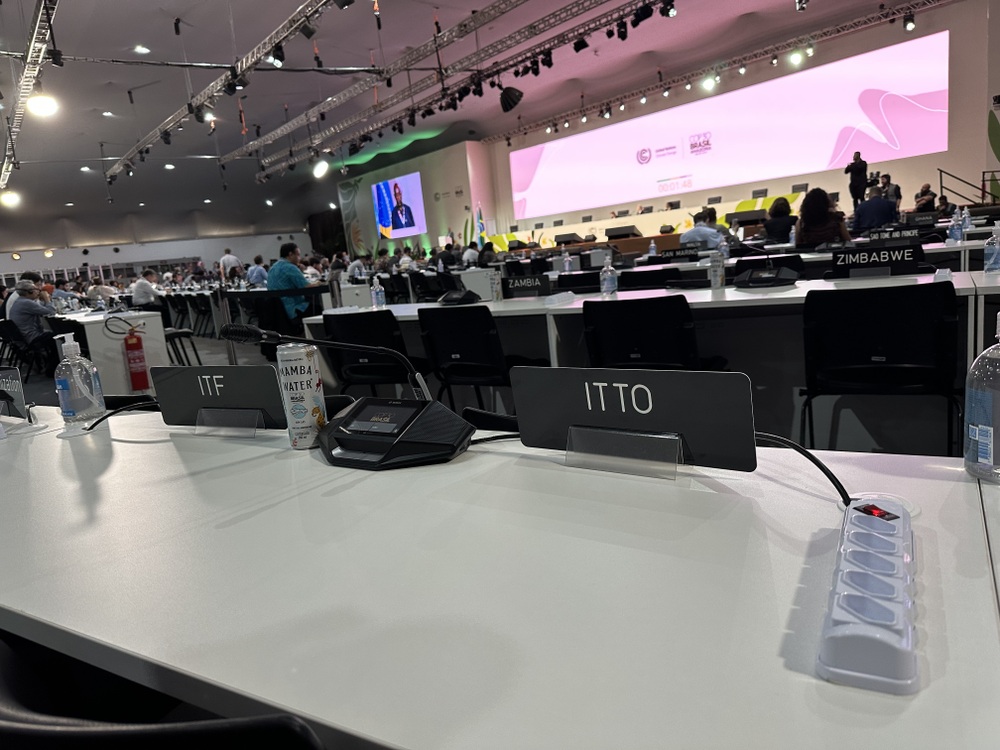
ITTO voice represented in global dialogue on the world’s major forest basins
At the Agence Française de Développement (French Development Agency) / Expertise France panel “Des poumons pour la planète : solutions à impact pour la préservation et le développement des 3 principaux bassins forestiers du monde” (Lungs for the planet: impactful solutions for the preservation and development of the world's 3 main forest basins), ITTO’s Finance and Administrative Officer Simon Kawaguchi spoke on behalf of Executive Director Ms Satkuru.
The discussion examined progress since the Glasgow Declaration on Forests. The Democratic Republic of the Congo’s Minister reaffirmed the country’s commitment to preventing deforestation, while France reiterated its support for forest protection and sustainable development in the Basin.
ITTO highlighted that deepening implementation of sustainable forest management, through stronger governance and close collaboration with the private sector, is essential for preventing deforestation while enhancing livelihoods. With more than 1,400 projects implemented to date, ITTO asserted its longstanding commitment to zero deforestation through practical, on-the-ground action across the tropics.
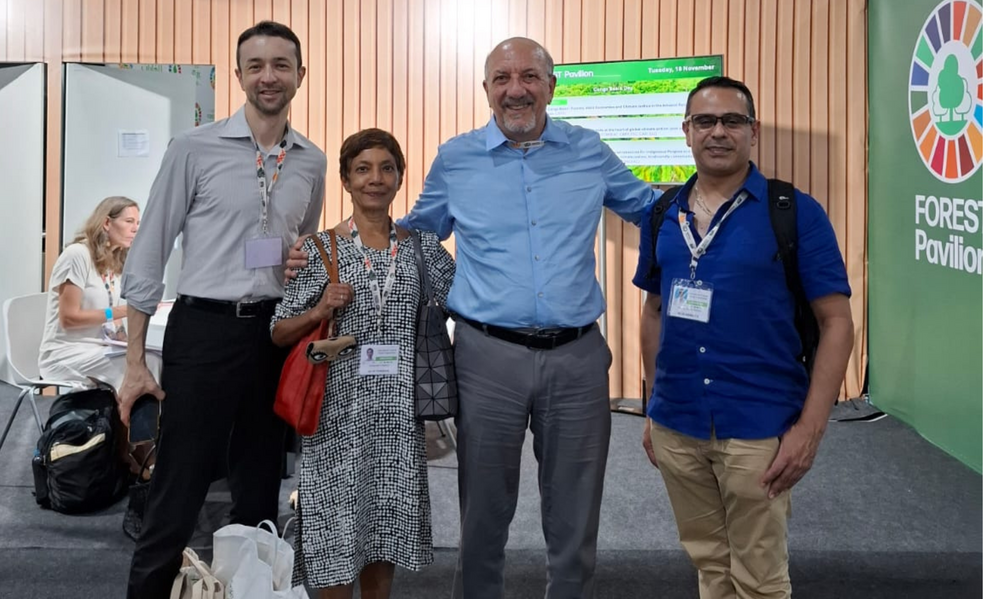
Courtesy call with the Brazilian Forest Service
On the sidelines of COP30, ITTO paid a courtesy call to Mr Garo Batmanian, Head of the Brazilian Forest Service. Discussions focused on strengthening cooperation between BFS and ITTO, including updates on Brazil’s Tropical Forest Forever Facility launched at COP30, and opportunities for deeper collaboration on sustainable forest management and restoration.